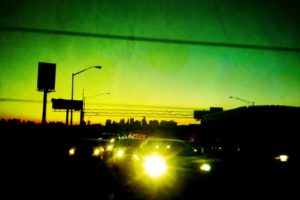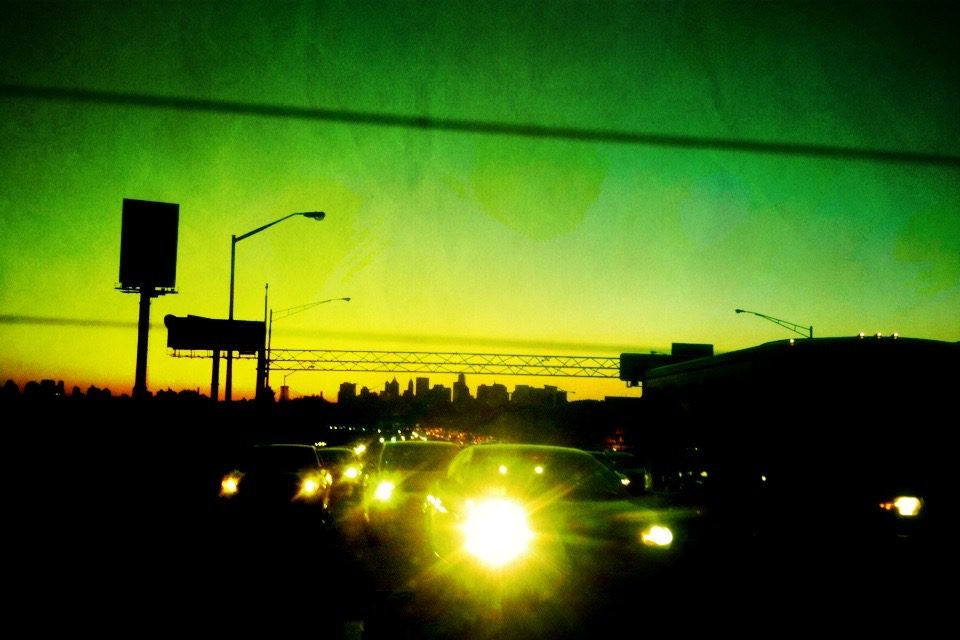
from 31 July 2017
It’s 11 am on a Monday, and I’ve just been sufficiently dropped, poked, prodded, and buzzed with the electrokinetic fork that my chiropractor uses. We’ve righted a pelvic misalignment from catching myself as I fell off of a rented bicycle on Saturday night, and now that I feel like a regenerated cyborg, albeit a 33-weeks pregnant cyborg, it’s time to eat and to write. Unfortunately, I’m in Oakmont, PA.
To write, I would like to have the internet. Most people would say “need”, but I’m trying to remember that the Internet is a service, a luxury, and that the words will come out of my brain and through my fingers and onto any medium I can find, so the Internet isn’t entirely necessary. But today it would be helpful for accessing working drafts of a manuscript. I can almost certainly find the Internet at Panera Bread, or at the beautiful Carnegie Library. Old libraries excite and thrill me with their architecture and design, the quivering potential of their unread stories, the reverential hush occasionally broken by a child’s clatter or a homeless person demanding immediate assistance with computer access.
For context, in case you don’t find libraries “thrilling”, you should know that I wear high fidelity earplugs when I am convinced by my husband, once or twice a year, to see a major release film in the movie theater. I spend action scenes with my eyes closed, breathing deeply. Understimulation is my game, and I’m fighting hard to win.
For lunch, I would like to patronize a local establishment but my appetite is mangled by pregnancy meaning that I CANNOT WAIT to eat, I must eat NOW or I will PERISH, and I need that Internet. Which is how I end up at the chain restaurant known as Panera, eating a cup of Broccoli Cheddar soup that seems to have been recently squeezed out of a bag, with a sprouted grain roll which doesn’t seem terribly sprouted but at least has identifiable rolled oats glued to the crust. The soup goes down easy, aided by three packets of single serve black pepper, and as I consider packing up to head to the library I realize that the blandness is actually fairly conducive to writing. Nothing about Panera thrills me – not the baked goods, the staff, the graphic design, the large expanses of neutral color nothingness on the walls, the paintings that try to break up that bland nothingness, or the food. It is an environment devoid of thrills, there is nothing to be discovered, and so I begin to write without distractions.
Only, there are people at Panera. I have plugged in my headphones – to my ears, not to any source of sound – because it makes me look busy and it cuts some of the bland music and surrounding conversations, but still I can hear the elderly ladies to my right when they begin to discuss a local drunk driving crash that took the lives of three or four very young girls. I start listening because I am surprised to hear them correctly using social technology words like Snapchat and Instagram.
“A different generation,” one of them says without bitterness or judgement. “We didn’t have time for that.”
“Noooooo,” says the other. “We were busy. Working.”
So I interrupt my writing to search for the news story; the elderly ladies have all the tragic details correct. They leave, and instead of focusing on my work I search for press about another young writer, the melt-down of her ten year marriage. She is still fabulously beautiful, and successful, and has left the days of just scraping by long behind her. Her blog is full of advice for would-be writers, sound words of wisdom, but her life as she and the internet present it is, in spite of the recent pain, still so utterly fabulous that it hurts. She is not trying to write at a Panera, wishing she had upgraded from the budget cup of bagged soup because an unborn baby is rummaging around her insides, demanding more food. She is probably writing somewhere fashionable, some place that writers hang out and eat oysters, or in her perfectly minimalist writing studio at her beautiful home with potted plants that never die from lack of attention.
I wallow in some envy and self-pity, and then I return to writing.
While I write, the same table on the end of my row hosts a very elderly mother and her less elderly daughter who tries to explain the concept of “pesto.” Some time later, I realize another woman’s voice has droned into my consciousness: she is slowly and methodically reading the menu descriptions aloud. When I look up, I see her seated across from a physically younger dark-haired woman who is using all of her powers of concentration to slowly move her finger over sections of the paper menu. The younger woman cannot hold her head fully upright, but she is well dressed with stylish accessories. A sparkly purple cane leans against the booth. The slowness of their interaction is painful to observe, but when I look up again it has paid off: there is a specific drink, salad, and soup in front of the younger woman, and the two are enjoying their meal together. I am inspired by the patience both applied to the task of deciding what the woman with the stroke would like to eat. And I’m a bit sobered by the realization that I would not have had these interactions anywhere else.
Timothy Snyder, who has spent his career studying the rise of dictators and the permission to do great evil given to them by their surrounding populous, recently wrote in his book On Tyranny:
“…Hitler’s language rejected legitimate opposition: The people always meant some people and not others (the [current] president uses the word in this way)…”
I have been chewing on this concept recently. Who are “the people” to whom I belong, and what qualifies “the people” to whom I don’t belong? Is it their town, or age, or preference for broccoli cheddar soup over locally sourced pad see ew? What about race, and wage class, and perceived degree of stylishness? Aren’t we all just the people? This lack of solidarity is precisely what the president and plenty of other leaders don’t seem to grasp, and my easily wounded image doesn’t want to embrace.
I am the people at Panera, as much as I want to be the people at the hip, locally owned coffee shop in the artsy section of town, even though I don’t even drink coffee. I am the writer, sitting near the artist and designer and musician, all of them tattooed and whimsically disheveled, leaking off more coolness and stimulation than I will ever be able to contain. I am the writer, in a white suburb’s Panera, watching the cashier mentally gear herself up to deal with my confusion about the menu pricing, watching the middle-aged woman with her mother, watching the caretaker of the woman with the stroke. I will soon be the middle aged woman whose unfamiliarity with Panera will confound the next generation of cashiers. I may soon be courageous enough to put my foot down and say, no, these blockbuster films leave me with emptiness inside, they distress more than they entertain. I hope I will soon be more of a writer than I am today, because I let myself eat soup in an environment that wasn’t my style, didn’t boost my image, and I became aware of it as I watched and listened to the people around me.
I am the people, all the people, and so is the alien, the president, and the stranger; and this is what we are all, on our hubris-hungry self-centered days, completely missing.


